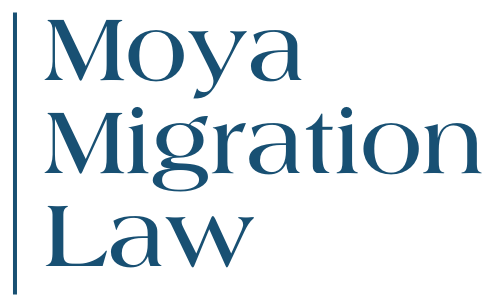Introduction
If you were born outside Australia and one of your parents was an Australian citizen at the time of your birth, you may be eligible to claim Australian citizenship by descent. This unique pathway is not an application to become an Australian citizen, but rather a registration of the citizenship you were entitled to currently you were born, allowing you to inherit this status directly.
While this process is often more straightforward than other citizenship routes, a successful citizenship application requires careful preparation of specific identity documents and proof of your parent’s status. This guide provides a comprehensive overview of the eligibility criteria, the evidence you will need to provide, and how to navigate common challenges to secure your Australian citizenship certificate.
Understanding Citizenship by Descent
Australian citizenship by descent is a specific pathway for individuals born overseas to become an Australian citizen. This option is available if at least one of your parents was an Australian citizen at the exact moment of your birth.
Unlike other routes to citizenship, this process is not an application to become a citizen, but rather a registration of the citizenship you were entitled to inherit at birth. This pathway acknowledges that your parent’s Australian citizenship was passed on to you.
Key distinctions of applying for Australian citizenship by descent include:
- It can be completed from anywhere in the world and does not require you to have ever lived in Australia
- There is no requirement to sit for a citizenship test
- You are not required to attend a citizenship ceremony
If your citizenship application is successful, the Department of Home Affairs will register you as an Australian citizen by descent. You will then be issued an Australian citizenship certificate, which serves as the official proof needed to apply for your first Australian passport.
Request Your Free 15-Min Consultation
3 Core Eligibility Requirements
Requirement 1: Birth Outside Australia
To be eligible for Australian citizenship by descent, you must have been born outside Australia. Your date of birth is also a critical factor; this pathway is available only to individuals born on or after 26 January 1949.
This specific date is significant because it marks when the Nationality and Citizenship Act 1948 (Cth) came into effect, establishing modern citizenship laws. If you were born overseas before this date, different criteria may apply.
Requirement 2: Parent’s Citizenship at Your Birth
The most important eligibility requirement is that at least one of your parents was an Australian citizen at the exact time of your birth. It does not matter if your parent:
- Later renounced their citizenship
- Is now deceased
The key is their status at that precise moment.
Conversely, if one of your parents became an Australian citizen after you were born, even just one day later, you are not eligible for this specific pathway.
The parent could have been an Australian citizen by:
- Birth
- Through their descent
- By grant (naturalisation)
As long as they held this status when you were born.
Requirement 3: The 2-Year Residency Rule for Parents
An essential exception applies if your Australian parent also acquired their citizenship by descent or through adoption outside Australia. In such cases, that parent must have lawfully resided in Australia for a total period of at least two years at some point in their life.
This residency requirement does not need to be met at the time of your birth, but must be fulfilled before you submit your citizenship application.
Request Your Free 15-Min Consultation
Evidence Checklist for Your Application
Personal Identity & Parentage Documents
To support your citizenship application, you must provide several personal identity documents. The most crucial of these is your full birth certificate, as it establishes the direct link to your Australian parent by showing:
- Your name
- Date and place of birth
- Names of your parents
You will also need to supply other identity documents to verify who you are. Generally, you need to provide three documents that together confirm your:
- Photograph
- Signature
- Current residential address
Acceptable items include:
- A current passport or national ID card from any country
- A driver’s licence or proof of age card
- Documents showing your current address, such as a recent utility bill, bank statement, or rental contract
- A recent, passport-sized photograph
If your name has changed since birth, for instance through marriage, you must also include official documents to connect your current identity to the name on your birth certificate. These might include:
- Marriage certificate
- Legal name change certificate
Proof of Parent’s Australian Citizenship
Proving that one of your parents was an Australian citizen at the time of your birth is the most important part of your application. You must provide strong evidence to confirm their citizenship status on the exact day you were born.
The Department of Home Affairs accepts numerous key documents as proof. The most effective forms of evidence include:
| Evidence Document | Description / Condition for Use |
|---|---|
| Parent’s Australian Birth Certificate | The full certificate is required if they were born in Australia. |
| Parent’s Australian Citizenship Certificate | Applicable if they were granted citizenship before you were born. |
| Parent’s Australian Passport | Must have been issued before your birth and still valid at that time. |
| Evidence of Naturalisation | Includes a certificate or records from the National Archives of Australia, if they became a citizen before you were born. |
Request Your Free 15-Min Consultation
Common Problems Proving Parentage & Finding Old Citizenship Records
Finding Historical Citizenship Records
Many applicants face challenges when their parent’s citizenship documents are old, lost, or were never issued. If you need to prove your parent’s Australian citizenship from decades ago, there are many official channels you can use to locate historical records.
Your search for these documents should begin with the most authoritative sources:
| Source / Agency | Purpose and Information Held |
|---|---|
| National Archives of Australia (NAA) | Holds naturalisation and citizenship records from 1904 onwards, including naturalisation case files. |
| Registry of Births, Deaths and Marriages (BDM) | Provides certified copies of birth certificates for parents born in Australia, which are crucial for proving citizenship. |
| Evidence of Australian Citizenship | A direct application to the Department of Home Affairs for your parent’s proof of citizenship if other records cannot be found. |
In cases where official documents cannot be found, you may be able to use supplementary evidence. This could include old Australian passports, tax records, or statutory declarations from family members who can attest to your parent’s citizenship history.
Handling Complex Parentage Issues
Your citizenship application relies heavily on your full birth certificate, clearly naming your Australian parent. If your parentage is not straightforward, you will face a significant hurdle that requires additional evidence to overcome.
For situations where a father is not listed on the birth certificate, you may need to provide supplementary proof, such as:
- A marriage certificate for your parents
- A statutory declaration from your father confirming his biological relationship to you
- DNA test results, though the Department of Home Affairs has a strict policy and typically requires testing to be done through one of its approved laboratories
Cases involving international surrogacy are particularly complex and require specialist advice. You will generally need to provide extensive documentation, including:
- Medical records from the fertility clinic
- The official surrogacy agreement
- DNA evidence proving the biological link to the Australian citizen parent
If your Australian parent is deceased, you can use their death certificate combined with other proof of their citizenship, such as a passport or birth certificate. This can be supported by statutory declarations from other family members.
Request Your Free 15-Min Consultation
The Good Character Test for Applicants 18 & Over
If you are 18 years of age or older when you lodge your citizenship application, you must satisfy the ‘good character’ requirement. This is a mandatory assessment of your enduring moral qualities and is used by the Department of Home Affairs to determine if you are likely to uphold and obey the laws of Australia.
The Department conducts a holistic assessment of your character, considering your past and present conduct. Factors that are typically considered include:
- Any criminal convictions you have, both in Australia and overseas
- Your associations with people or groups involved in criminal activity
- Any outstanding obligations you may have to a court
- Incidents of domestic violence
- Whether you have been honest in your dealings with Australian authorities, particularly in relation to any visa or citizenship application
To facilitate this assessment, you may be required to provide official police checks. This includes:
- A Nationally Coordinated Criminal History Check (NCCHC) for your time in Australia
- Penal clearance certificates from any country where you have spent a total of 12 months or more in the past 10 years
It is important to understand that having a criminal record does not automatically mean your application will be refused. Each case is assessed on its individual merits, considering the seriousness of the offence, the time that has passed, and any evidence of rehabilitation.
Full and honest disclosure is critical throughout your citizenship application. Failing to declare a conviction or other relevant character issue is often viewed more seriously than the matter itself and can lead to significant delays or the refusal of your application. This leaves you to wonder what immigration and citizenship options you have next.
Request Your Free 15-Min Consultation
Citizenship by Descent vs. Conferral
While both pathways result in Australian citizenship, the processes for applying by descent and by conferral are fundamentally different. Citizenship by descent is a registration of a right you inherited at birth from a parent, whereas citizenship by conferral is an application to become a new citizen after migrating to and living in Australia.
The primary difference lies in who can apply. The descent pathway is designed for individuals born outside Australia to a parent who was an Australian citizen at the time of their birth. In contrast, the conferral pathway is for people who are already Australian permanent residents and have met specific residency requirements.
The application processes also have several key differences:
| Factor | Citizenship by Descent | Citizenship by Conferral |
|---|---|---|
| Residency Requirement | No residency requirement for the applicant. | Applicant must typically live in Australia for at least four years. |
| Citizenship Test | Not required. | Required for most applicants to demonstrate knowledge of Australia. |
| Application Location | Can be lodged from anywhere in the world. | Must generally be lodged while the applicant is in Australia. |
| Citizenship Ceremony | Not required; citizenship is granted upon registration. | A mandatory final step to formalise citizenship. |
Request Your Free 15-Min Consultation
Conclusion
Securing Australian citizenship by descent is an accessible pathway for those born overseas, provided at least one parent was an Australian citizen at the time of your birth. A successful citizenship application hinges on meeting the core eligibility criteria and providing thorough documentation to prove your identity and your parent’s citizenship status.
If you need assistance navigating the complexities of a citizenship application, contact our Australian citizenship lawyers at Moya Migration Law in Adelaide today. Our team offers specialised migration advice and tailored strategies to help you secure your best possible outcome.









